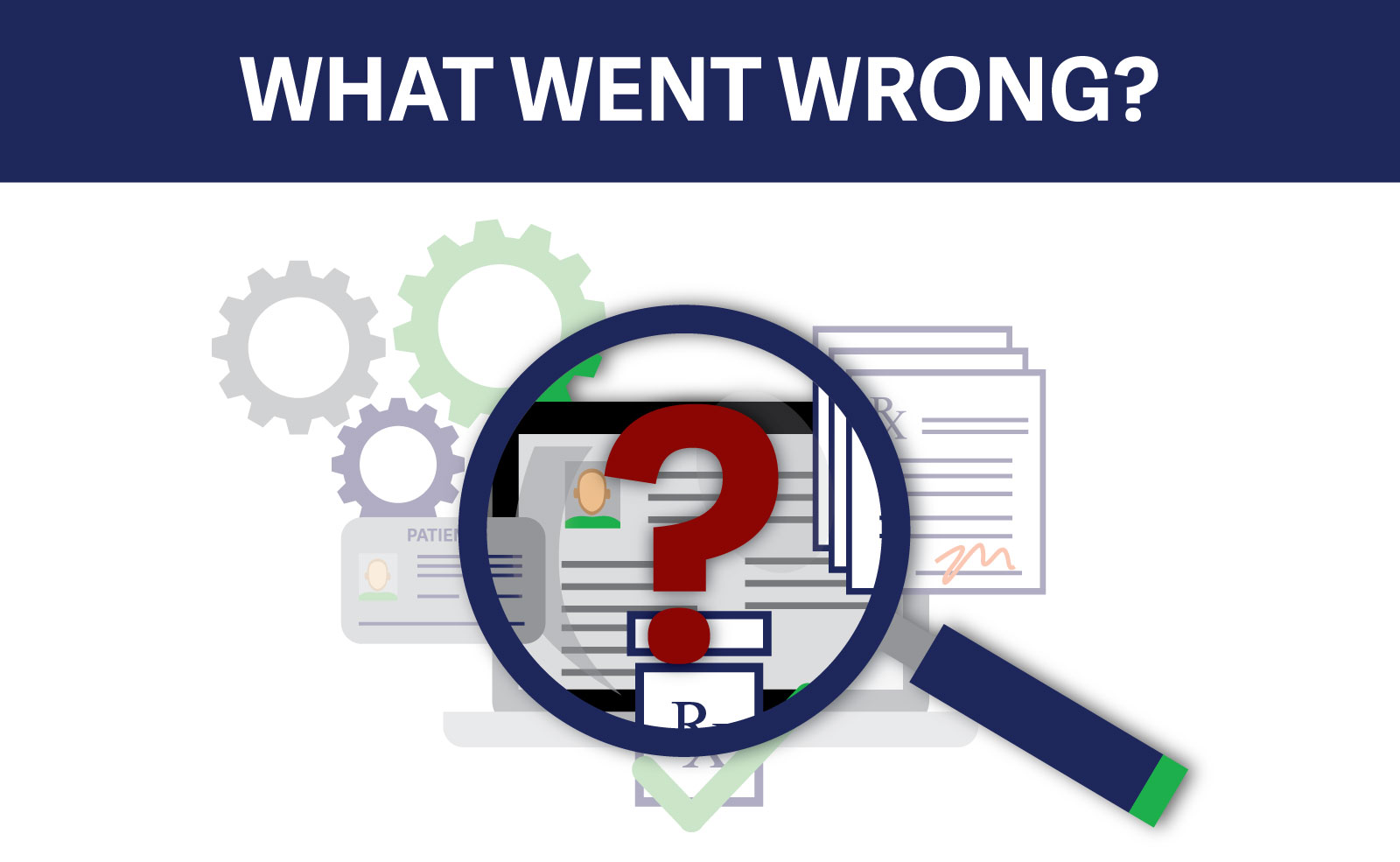What Went Wrong: Failure to Make Appropriate Arrangements for a Temporary Pharmacy Closure
A pharmacy manager must make appropriate arrangements to ensure continuity of care for patients during any temporary closure of a pharmacy.
Section 18(2)(u) of the Bylaws to Pharmacy Operations and Drug Scheduling Act (“PODSA”) stipulates that if a pharmacy will be closed temporarily for up to 14 consecutive days, the pharmacy manager must notify patients and the public of the closure at least 30 days prior to the start of the closure, and make arrangements for emergency access to the pharmacy’s hardcopy patient records.
Additionally, Professional Practice Policy-46 (“PPP-46”) states that it is permissible for a licensed pharmacy to be closed temporarily for up to 14 consecutive days without surrendering its operating license, provided that the following steps are performed:
- All prepared prescription recipients are advised of the closure and given the opportunity to obtain their prepared prescriptions prior to the temporary closure start date.
- Any prepared prescriptions remaining in the pharmacy at the time of the temporary closure must be returned to inventory and reversed on the patients’ PharmaNet record.
- Notices to the public are posted at least 30 days prior to the temporary closure start date.
- Signage is posted at the store entrance and a telephone answering machine message is provided advising the public about the closure, its duration, the location of the nearest licensed pharmacy, and other information to assist with obtaining necessary pharmacy services during the closure period.
- Alternate arrangements are made with local prescribers.
The College’s Inquiry Committee recently reviewed a case whereby a pharmacy manager failed to make appropriate arrangements and did not adequately notify the public prior to a planned temporary pharmacy closure.
Case
A pharmacy had planned to move to a new location and prior to the move the pharmacy manager temporarily closed the original location at different times over several days to accommodate contractors. To notify the public, the pharmacy manager posted signs and printed advertisements that stated the pharmacy was moving to a new location at an undetermined future date. However, these notices provided no specific date for the relocation and provided no specific dates for any closures leading up to the relocation. During the week leading up to the pharmacy’s relocation, a patient who was not aware of any temporary closures went to the pharmacy three times, each time to seek a prepared prescription. Each time, the pharmacy was closed.
Discussion
Pharmacists have a duty to act in the best interests of their patients. When there is a closure of a pharmacy for a period of time, patient care may be affected. A pharmacy manager must take reasonable measures to ensure the pharmacy’s closure does not impede their patients’ ability to obtain their prescriptions in advance or from another pharmacy.
In this case, the pharmacy manager planned to temporarily close the pharmacy on several occasions leading up to the relocation. Preceding the closures, the pharmacy manager made some arrangements to notify patients but did not provide specific information on the date of the relocation, the dates of closures, or any reductions of the operating hours of the pharmacy.
The patient in this case was left without access to needed medication since she did not know what time to attend the pharmacy. The patient eventually went to another community pharmacy where the pharmacist contacted the prescriber and obtained a new prescription for her.
The Inquiry Committee found that the pharmacy manager should have given the patient an opportunity to obtain her prepared prescriptions prior to the temporary closure by advising her in advance of the specific closure dates or making alternative arrangements.
Alternative arrangements should take into consideration the reasonable needs of the patient in relation to the closure. This may include contacting local prescribers, arranging for transfers of prescriptions to nearby pharmacies where necessary, and providing any other arrangements to assist the patient in obtaining necessary pharmacy services during the closure period. Additionally, the pharmacy’s hardcopy patient records should be retrievable and made available to health care professionals if needed.
In situations where a pharmacy is suddenly and unexpectedly required to temporarily close, the pharmacy manager should, as soon as it is practical to do so, take reasonable steps to comply with these requirements.
Ultimately, any temporary pharmacy closure must be conducted in accordance with section 18(2)(u) of PODSA and PPP-46 and ensure that patient continuity of care is appropriately maintained during the interruption in pharmacy services.
In this case, the Inquiry Committee requested the pharmacy manager consent to specific formal undertakings that included a Letter of Reprimand placed on the College register.
WHAT WENT WRONG READLINKS SERIES
Watch for What Went Wrong articles each month on ReadLinks. These articles highlight important pharmacy practice issues and real complaints cases identified through College investigations.
- What Went Wrong

 Share
Share



